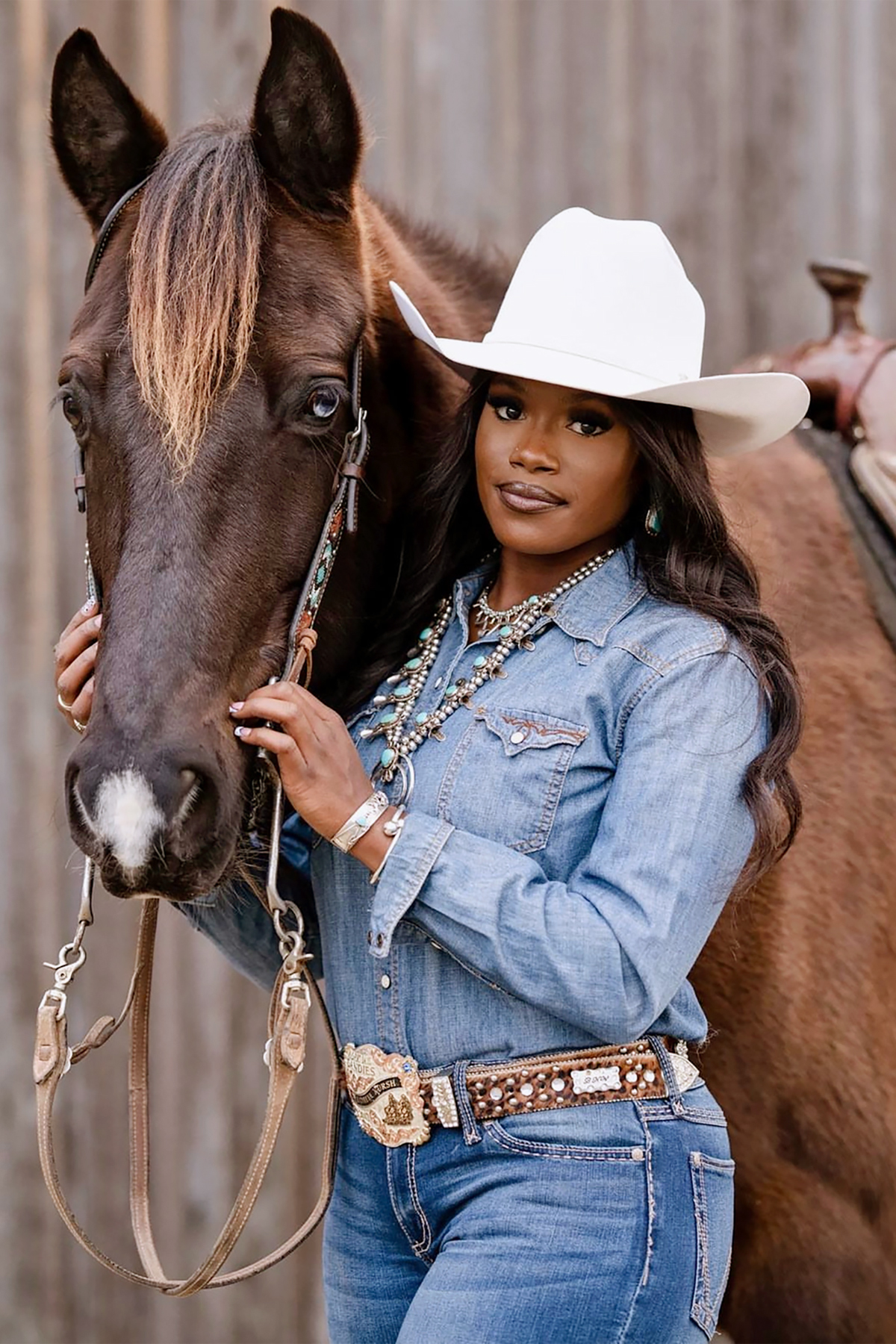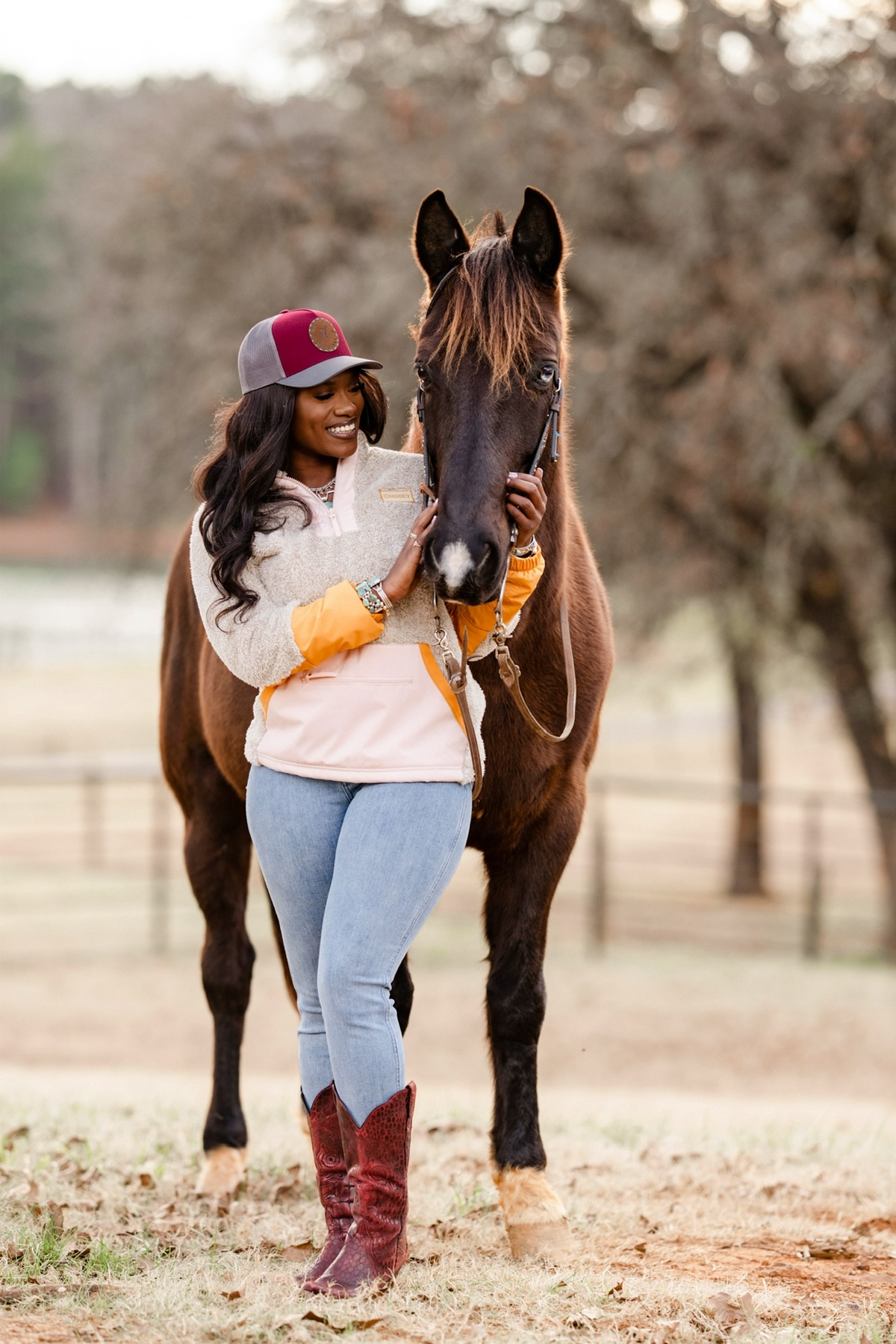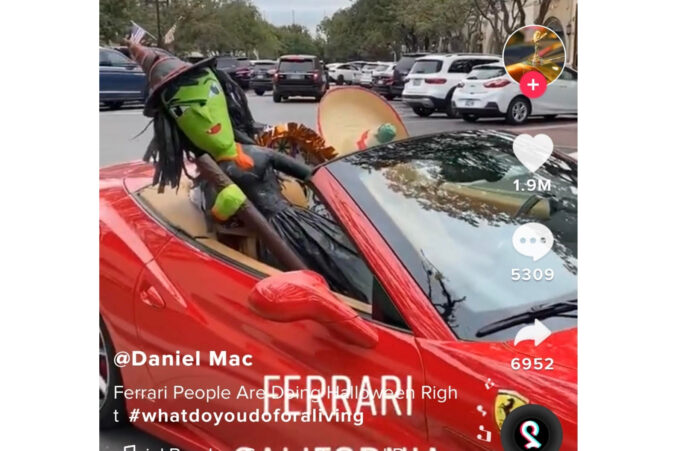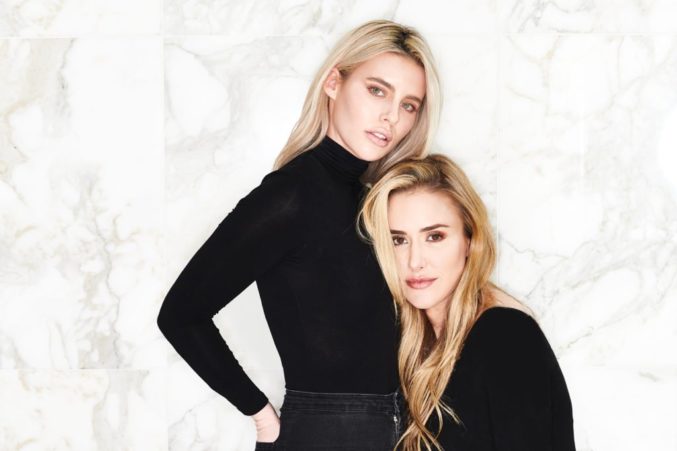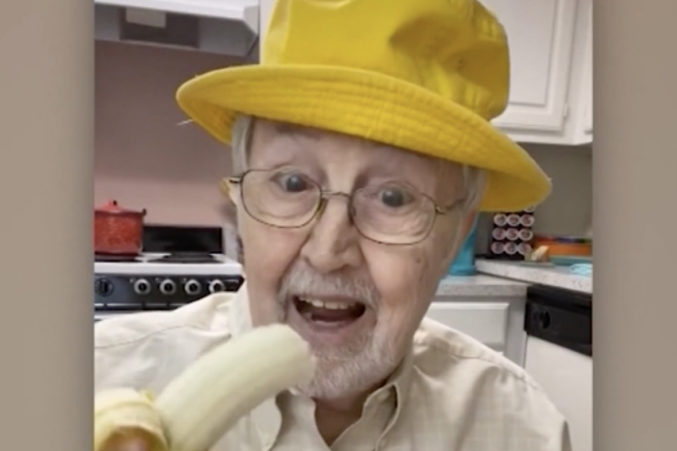From January 2023
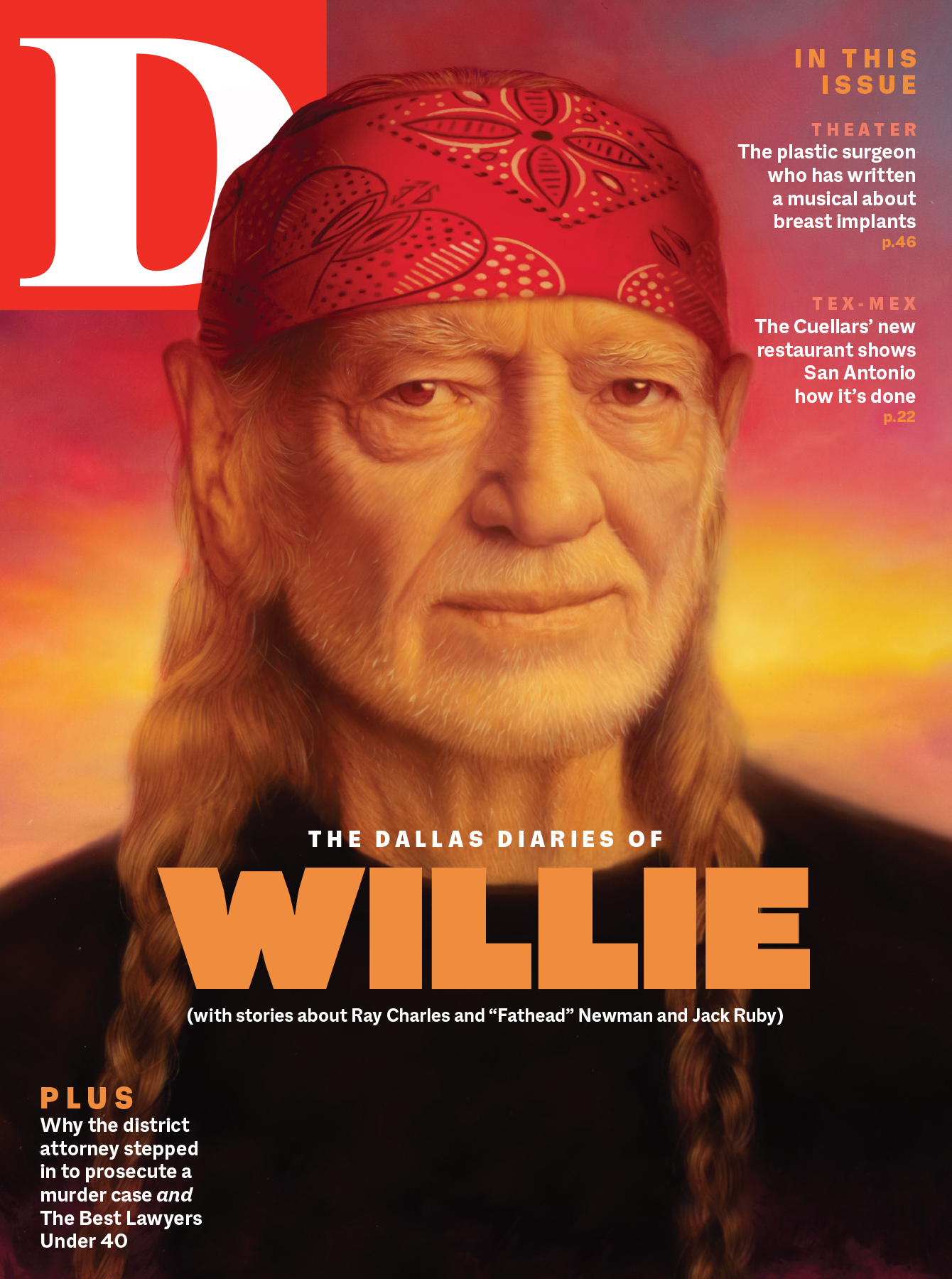
Growing up in Fort Smith, Arkansas, a small city on the Oklahoma border, Ja’Dayia Kursh first rode a horse when she was 6 years old as a form of therapy. She had been sexually assaulted and was struggling in school. She fell in love with riding, taking every opportunity she could to learn more about horses and Western culture. She started riding in rodeos when she was 13. By high school, she was borrowing a horse so that she could be a member of a mounted drill team. Being part of the team immersed Kursh more deeply in the world of rodeo, but it also exposed her for the first time to its racism. She learned that teammates’ families were calling her “monkey” behind her back.
“I’m not mad about the way they spoke about me or the things people have said about me,” Kursh told the Northwest Arkansas Democrat-Gazette years later. “It built me to be the woman I am today, to speak up about diversity, how I view the Western industry and what I would like to see be different.”
In 2017, on her 18th birthday, she was crowned Miss Rodeo Coal Hill—an achievement that made her the first Black rodeo queen in Arkansas history. “It was a bittersweet thing,” the 23-year-old says now. “I’m like, ‘Dang, I’m the first Black girl to do this in my state?’ ”
Kursh, who still rides bucking broncos competitively, grew used to being the first—or at least one of the few. When the Black Lives Matter movement led to street protests in the summer of 2020, some Western wear brands started to follow the lead of just about every organization and company in existence by stating their solidarity with Black people (typically in the vaguest possible terms) on social media. Kursh called their bluffs, questioning why they didn’t use Black models if they were so concerned about racism, and some of them listened, more or less launching her career in the process.
By then, diverse Western content was on the upswing. The shift came, in part, because of the vocal participation of long marginalized voices. Dallas content creator Bri Malandro had coined the phrase “the yee haw agenda” when she tweeted photos of Ciara wearing a cowboy hat in 2018. The hashtag—and the idea of taking ownership of Western culture’s often-erased diverse past—went viral, with Beyoncé performing with the Chicks at the CMAs and her sister Solange dancing in cowgirl attire in front of Dallas City Hall. And then there was the explosive success of Lil Nas X’s “Old Town Road” in 2019.
“Western content had a big spike when ‘Old Town Road’ was the No. 1 song on TikTok,” says Kelsey Weekman, who reports on social media for BuzzFeed News. “Everyone was dabbling in, like, being a little bit country, you know?”
But Kursh is no dabbler. Her commitment to the lifestyle and her background as a real rodeo competitor helped her rise quickly through the ranks. She is now among the most successful Black influencers in what she calls the “Western fashion industry.” It stretches from familiar boot retailers such as Cavender’s and Boot Barn to dozens of little boutiques dotting Texas that carry a mix of garb ranging from the turquoise, fringe, and flares of a ’60s hippie to the stiffly starched pearl-snap shirt of a barrel racer. Kursh has almost 600,000 followers on TikTok and 50,000 more on Instagram, and she has done ads for everyone from Wrangler to Beyoncé’s Ivy Park line.
All the while, she’s been vocal about advocating for herself and other people of color, regularly calling out Western brands and outlets that use only White models or voices or otherwise further the widespread assumption that Western culture—rodeos and ranching and so on—is exclusively a White space.
The “real” West was neither particularly glamorous nor mostly-—much less exclusively—White. Historians estimate that one in four cowboys was Black, and the gig itself was tough, thankless work. But the version of Western culture that is currently being filtered to the masses through the algorithms of TikTok and Instagram has more to do with the myth. When you type in “Western” on either app, you’ll find a new generation of rhinestone cowboys and cowgirls showing off Western-themed outfits soundtracked by a Miranda Lambert or Morgan Wallen song. They post videos of themselves riding horses or doing ranch-related chores (eyelash extensions intact, naturally), or performing mediocre dance routines to sped-up Luke Bryan songs while wearing the glitziest possible cowboy hats and boots. No one stops scrolling for subtlety.
Kursh has almost 600,000 followers on TikTok and 50,000 more on Instagram, and she has done ads for everyone from Wrangler to Beyoncé’s Ivy Park line.
It doesn’t take very long to see that, four years later, “the yee haw agenda” has been co-opted. You will find that, even as Lil Nas X and others appeared to open up room in the Western space for people of different races and sexual orientations, that territory was quickly reclaimed.
“It’s not surprising to me that Whiteness plays such a big role, consciously or unconsciously, in this kind of genre and culture,” says Jason Pierce, chair of the history department at Angelo State University. “It’s so ingrained into how we view the Western experience that [that experience is] probably going to remain seen as a bastion of Whiteness and the supposedly traditional values that Whiteness embodies—basically as a kind of bulwark against change.”
Change, though, is exactly what Kursh and plenty of her peers are aiming for. She’s gotten used to tolerating a certain amount of skepticism and even outright racism as what often feels like the price of admission.
“I know I make a lot of people uncomfortable because of the things that I talk about,” Kursh says. “But there are times when I’m uncomfortable in the spaces that I fill in this industry. Sometimes I get invited to parties where I’m the only Black girl there. I’m uncomfortable. You’re uncomfortable. We’re all uncomfortable.”
Pushing through that discomfort is something Kursh sees as a calling. But she didn’t necessarily expect that would be part of the gig when she was invited to join forces with a group of fellow Western influencers. “This was supposed to be fun,” she kept thinking in the days and weeks after it all went so wrong.
Billing itself as “The First Western Content House,” The TAC House is located just over an hour north of Dallas, in Sherman. A content house is essentially the online evolution of traditional reality shows such as Big Brother: a group of people, all aiming to expand their reach on the various social media platforms, live under one roof and become stronger together. The idea is that the close proximity leads to easy collaboration, which leads to videos, photos, and other content that can be posted to TikTok, Instagram, YouTube—wherever. A rising tide gets more likes.
The TAC House is the brainchild of Taylor Rousseau, a Western influencer from Amarillo who has 1.2 million TikTok followers and another 157,000 on Instagram, and her fiancé, Cameron Brigg, who also lives in the house. (Taylor and Cameron, TAC—get it?) Rousseau invited Kursh to join the collective, which included three other social media entrepreneurs in addition to her and Brigg. She would be the only Black participant.
In late August, Kursh packed up her belongings, drove out to Sherman, and immediately started to make videos to the “sounds” (songs or other audio) that she and her colleagues were assigned as part of their deals. Artists paid Rousseau and the house to make videos with their songs—try-hard TikTok bait like David Morris’ “Dutton Ranch Freestyle,” in which Morris raps over a banjo about a girl who loves “cheap drinks, tattoos, and Morgan Wallen.” (Wallen was briefly booted from country radio after being recorded saying the N-word in early 2021.)
Almost from the beginning, Kursh started to, once again, feel like an outsider. She would make videos with her colleagues, post them on her TikTok page, and tag them, but they wouldn’t reciprocate. Even The TAC House TikTok page didn’t always tag her, including in one video where she and other house members raised an American flag (along with a Texas flag and The TAC House flag) to audio of “The Pledge of Allegiance.”
“It was so easy for them to make TikToks with everybody else but not with me,” Kursh says.
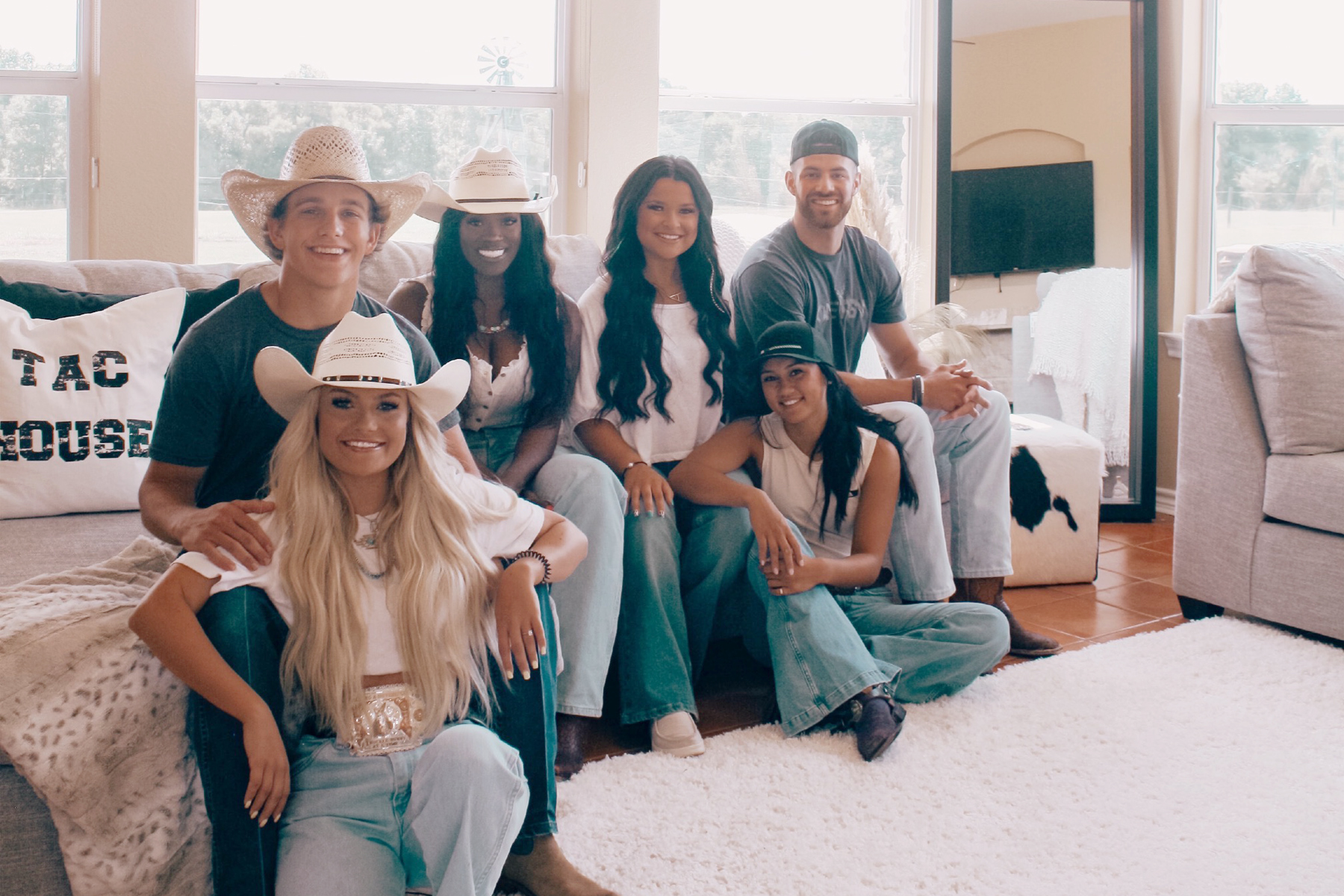
She alerted Mackenzie Gaston—who, in addition to managing The TAC House, is also Rousseau’s personal manager—about the issue. Gaston sent a text to the house group chat to resolve it.
Although the group agreed to designate days when they had to post about the other members from their own accounts, Kursh says little changed. Eventually, she expressed her frustration in TikTok form.
“Them: Always in competition with each other and not the other people on TikTok … realizing I’m not aesthetically pleasing [enough] to be posted on their pages, too,” she wrote. From there, things escalated. “Taylor took me saying ‘not aesthetically pleasing’ as me calling them racist,” Kursh says. The members of the house all met to speak about the issue again, and Kursh insisted that she didn’t think they were racist. One of the women in the house recorded her comment and then posted it on TikTok, without context, once Kursh went public with even more serious allegations.
Kursh claims Amanda Simmons, an influencer from Nashville whom she considered a friend, showed her a Snapchat photo and said, “Look at this n—-.”
“Amanda!” Kursh said, shocked.
“Oh, I’m so sorry,” Simmons replied.
“The first time I heard Amanda say it, I was so forgiving,” Kursh says. “I was like, ‘It’s OK.’ I was trying more to fit in, I think, trying to keep the peace. I didn’t want to be projected as the angry Black girl, which I know can happen.”
But Simmons’ apology rang hollow when she continued to use the slur again and again, singing along to it in her TikTok videos. “She just blatantly used the word, just talking,” Kursh says.
(“This is completely against everything that I stand for and how I have been raised,” Simmons said in a TikTok video response to Kursh’s allegations. “I love and support everyone regardless of their race.” She did not, however, categorically deny Kursh’s claims.)
From there, the situation continued to unravel, culminating in Kursh receiving a PayPal payment for $166 after being at the house for several weeks. She admits now she didn’t read her contract closely enough. As it turned out, Rousseau and Grigg earned 70 percent of every deal, and the other four split the remaining 30 percent. Besides rent, the house covered no expenses. “I didn’t realize we were getting robbed,” Kursh says. But even then, the PayPal payment was light by almost $100.
When she asked in the house’s group chat why the amount was so much lower than she’d expected, Kursh was informed that she’d breached her contract by discussing the matter with the other house members, and she would have to move out immediately.
The ensuing days were a mess of back-and-forth TikTok screeds and a flurry of accusations and statements from both sides. Finally, Kursh moved out. She was concerned what the hullabaloo might have done to her reputation, but a number of brands she’d worked with reached out to reassure her.
“Ja’Dayia continues to make her mark on cowgirl culture not only because of her unique and empowering story, but through her dedication to philanthropy and education,” says Holly Wheeler, Wrangler’s vice president of global marketing. “We’ve welcomed the opportunity to work with her and are committed to emphasizing the importance of representing diverse cultures and people within the Western space.”
All but one member of the house posted their own vague denials, including a three-part video from a teary-eyed Rousseau. The house account posted a video of publicist Chandra Gore reading an official statement.
“We are surprised and disheartened by the posts made by a former content creator who was invited to our team to bring diversity and awareness to The TAC House,” Gore read. “The accusations that have been posted on social media regarding mistreatment from The TAC House of this individual are unfounded and untrue. … Racism and bullying of any kind are not and will not ever be tolerated by anyone who is a member or associated with The TAC House.” (The TAC House declined to speak with D Magazine, saying that they “stand by our previous statement of being an inclusive space for creators who partner with us.”)
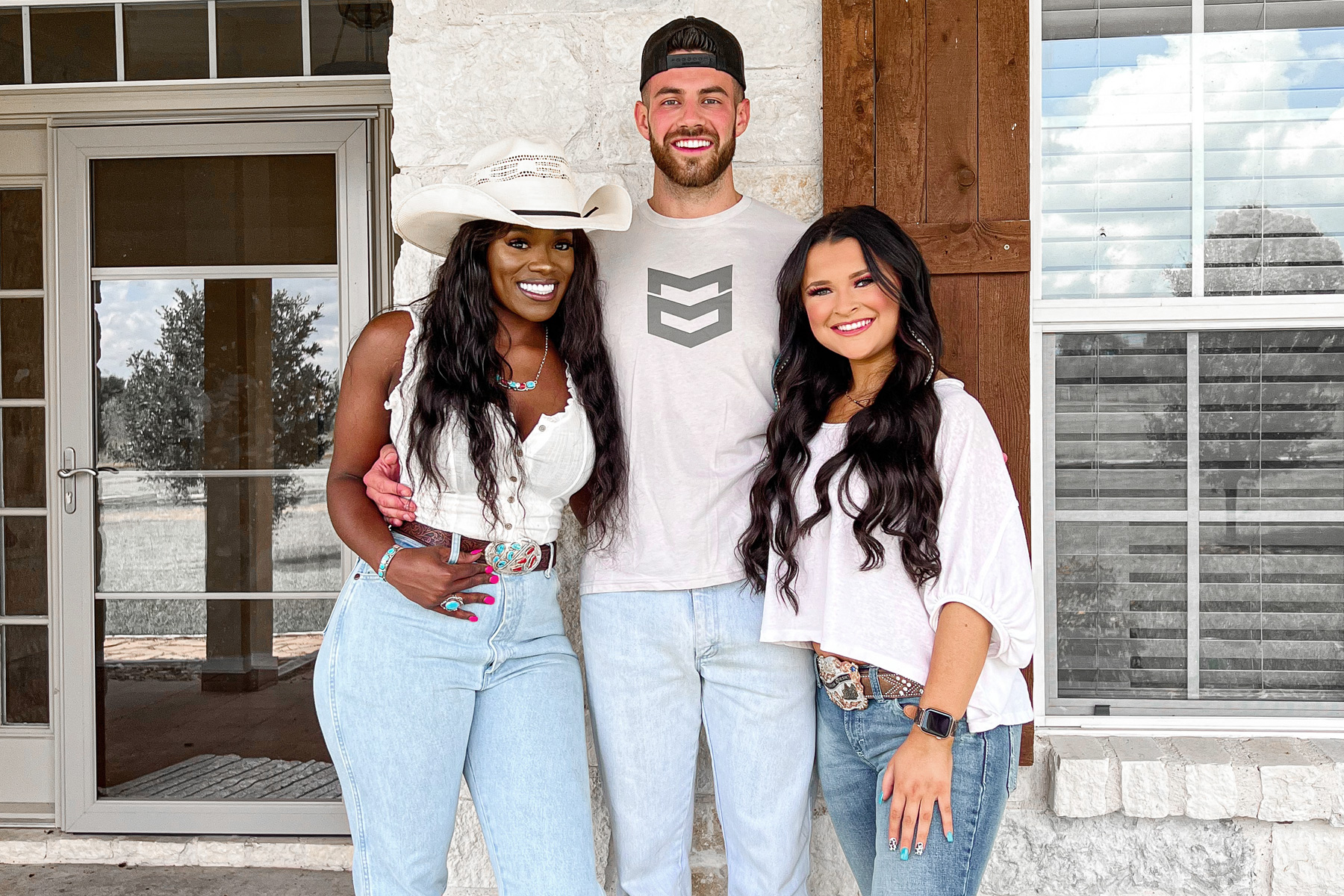
“When I saw that video, with the publicist saying that I was brought in for ‘diversity’—I thought we were friends!” Kursh says. “It makes me more hesitant to work with White cowboys and cowgirls in the future. Am I just there for ‘diversity’ purposes for everybody?”
The only member of The TAC House who stayed silent on social media about the fracas was Cameron Payne, who left the house not long after Kursh did. According to Kursh, Payne told her he wouldn’t make a statement publicly because he had heard Simmons admit to saying the slur. (Payne declined D Magazine’s request for comment, saying only that he’d “really prefer to leave it in the past.”)
Both sides threatened legal action, and Kursh retained a lawyer but ultimately decided against filing suit. Although everyone appears to have made it out unscathed, the incident betrays the fault lines along which this sizable industry, its growing social media apparatus, and its so far modest attempts at becoming more inclusive still break.
For her part, Kursh is back where she started, not far from where she first saddled up back when she was 6 years old. She still feels like she must hold Western brands and influencers accountable and keep pushing for more diversity.
“I’m trying to bridge the gap,” she says. “But sometimes I can’t tell if talking about it and trying to make it more relevant makes it a bigger gap. It’s just a lot. I never want it to be like, ‘Oh, she’s just the token Black girl.’ ”
This story originally appeared in the January issue of D Magazine with the headline, “Not Her First Rodeo.” Write to [email protected].


